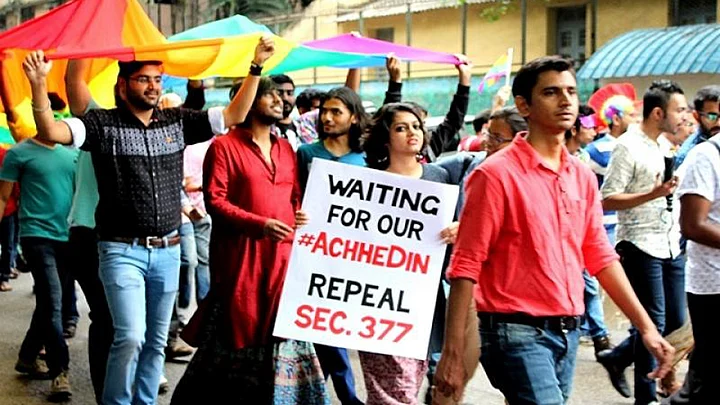Section 377 of the Indian Penal Code, which criminalises homosexuality, will be repealed ‘sooner than later’, said Anand Grover. The senior lawyer, who has long fought for legal rights of the LGBTQ (lesbian, gay, bisexual, transgender, queer) community, believes “not much remains to be done in terms of law” to repeal the centuries-old law that effectively terms homosexual relations as illegal.
The Supreme Court referred to a larger bench a plea seeking decriminalisation of gay sex between two consenting adults. A bench comprising Chief Justice Dipak Misra and Justices AM Khanwilkar and DY Chandrachud acted on a fresh plea filed by Navtej Singh Johar seeking to declare Section 377 as unconstitutional to the extent that it provides prosecution of adults for indulging in consensual gay sex.
In 2009, the Delhi High Court had repealed parts of this section dealing with consensual gay sex as part of a petition filed by non-governmental organisation Naz Foundation. Grover represented the NGO in court.
The high court’s judgement was set aside by the Supreme Court in 2013, which asked the parliament to frame laws. In doing so, the apex court “did not recognise that there was a change in the rape law, which is a huge infirmity in the judgement,” explained Grover. The rape law was changed to allow consensual anal and oral sex in heterosexual relationships and this should naturally extend to homosexuals, he said.
For example, under the rape law if a woman has, by consent, penile oral or penile anal sex, it is not illegal. What happened was that whereas in a heterosexual relationship these activities on consent would be legal but between two men it became illegal.Anand Grover, Senior Advocate
The time is ripe for these ‘incongruities’ in the law to be undone, he added.
Pointing to another anomaly Grover, explained that while the POCSO (Prevention of Children from Sexual Offences) Act that protects children is gender neutral, Section 377 becomes gender specific for an adult.
“By and large things are moving politically towards decriminalising and actually ultimately repealing Section 377,” said a hopeful Grover.
(The story was originally published on BloombergQuint and has been republished with permission)
(At The Quint, we question everything. Play an active role in shaping our journalism by becoming a member today.)
